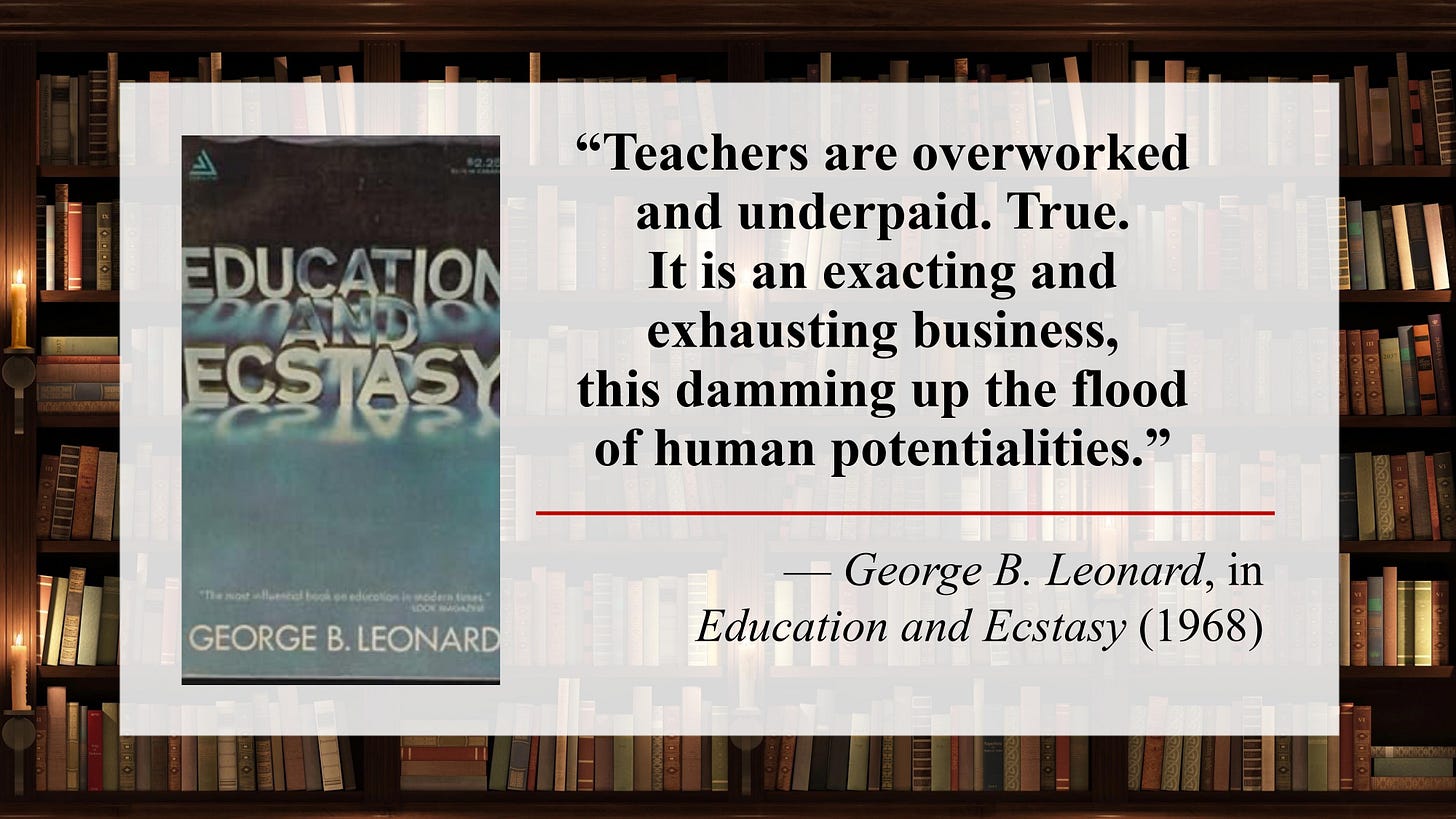Dr. Mardy's Quotes of the Week ("Sarcasm")
March 31—April 6, 2024 | THIS WEEK: “Sarcasm”
Opening Line of the Week
It is generally inadvisable to begin a book with a sarcasm-laced observation, but Leonard—a leader of the human potential movement as well as a critic of the educational establishment—was clearly trying to get people’s attention. In the first paragraph, he continued:
“What energy it takes to make a torrent into a trickle, to trai…
Keep reading with a 7-day free trial
Subscribe to Dr. Mardy's Substack to keep reading this post and get 7 days of free access to the full post archives.

